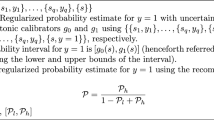Abstract
As AI has been applied in many decision-making processes, ranging from loan application approval to predictive policing, the interpretability of machine learning models is increasingly important. Interpretable models and post-hoc explainability are two approaches in eXplainable AI (XAI). We follow the argument that transparent models should be used instead of black-box ones in real-world applications, especially regarding high-stakes decisions. In this paper, we propose PolyFIT to address two major issues in XAI: (1) bridging the gap between black-box and interpretable models and (2) experimentally validating the trade-off relationship between model performance and explainability. PolyFIT is a novel polynomial model construction method assisted by the knowledge of feature interactions in black-box models. PolyFIT uses extracted feature interaction knowledge to build interaction trees, which are then transformed into polynomial models. We evaluate the predictive performance of PolyFIT with baselines using four publicly available data sets, Titanic survival, Adult income, Boston house price, and California house price. Our method outperforms linear models by 5% and 56% in classification and regression tasks on average, respectively. We also conducted usability studies to derive the trade-off relationship between model performance and explainability. The studies validate our hypotheses about the actual relationship between model performance and explainability.
Access this chapter
Tax calculation will be finalised at checkout
Purchases are for personal use only
Similar content being viewed by others
References
Chen, T., Guestrin, C.: XGBoost: a scalable tree boosting system. In: Proceedings of the 22nd ACM SIGKDD International Conference on Knowledge Discovery And Data Mining. pp. 785–794 (2016)
Doshi-Velez, F., Kim, B.: Towards a rigorous science of interpretable machine learning. arXiv preprint arXiv:1702.08608 (2017)
Dua, D., Graff, C.: UCI machine learning repository (2017)
Fujimoto, K., Kojadinovic, I., Marichal, J.L.: Axiomatic characterizations of probabilistic and cardinal-probabilistic interaction indices. Games Econom. Behav. 55(1), 72–99 (2006)
Gunning, D.: Broad agency announcement, explainable artificial intelligence(XAI). Tech. Rep. DARPA-BAA-16-53, Defense Advanced Research Projects Agency (2016)
Harrison, D., Jr., Rubinfeld, D.L.: Hedonic housing prices and the demand for clean air. J. Environ. Econ. Manag. 5(1), 81–102 (1978)
Hase, P., Bansal, M.: Evaluating explainable AI: which algorithmic explanations help users predict model behavior? arXiv preprint arXiv:2005.01831 (2020)
Ho, S., Burke, G.: Oregon dropping AI tool used in child abuse cases. The Associated Press (2022)
Hutton, A., Liu, A., Martin, C.: Crowdsourcing evaluations of classifier interpretability. In: 2012 AAAI Spring Symposium Series (2012)
kaggle: Titanic - machine learning from disaster. Accessed 05 July 2022
Lou, Y., Caruana, R., Gehrke, J., Hooker, G.: Accurate intelligible models with pairwise interactions. In: Proceedings of the 19th ACM SIGKDD International Conference on Knowledge Discovery and Data Mining, pp. 623–631 (2013)
Lundberg, S.M., Erion, G.G., Lee, S.I.: Consistent individualized feature attribution for tree ensembles. arXiv preprint arXiv:1802.03888 (2018)
Lundberg, S.M., Lee, S.I.: A unified approach to interpreting model predictions. In: Guyon, I., et al. (eds.) Advances in Neural Information Processing Systems 30, pp. 4765–4774. Curran Associates, Inc. (2017)
Meyer, D.: Amazon reportedly killed an AI recruitment system because it couldn’t stop the tool from discriminating against Women. Fortune Media IP Limited (2018)
Nori, H., Jenkins, S., Koch, P., Caruana, R.: InterpretML: Aaunified framework for machine learning interpretability. arXiv preprint arXiv:1909.09223 (2019)
Oh, S.: Feature interaction in terms of prediction performance. Appl. Sci. 9(23), 5191 (2019)
Pace, R.K., Barry, R.: Sparse spatial autoregressions. Statist. Prob. Lett. 33(3), 291–297 (1997)
Ribeiro, M.T., Singh, S., Guestrin, C.: “why should i trust you?” explaining the predictions of any classifier. In: Proceedings of the 22nd ACM SIGKDD International Conference on Knowledge Discovery and Data Mining, pp. 1135–1144 (2016)
Rudin, C.: Stop explaining black box machine learning models for high stakes decisions and use interpretable models instead. Nat. Mach. Intell. 1(5), 206–215 (2019)
Speith, T.: A review of taxonomies of explainable artificial intelligence (XAI) methods. In: 2022 ACM Conference on Fairness, Accountability, and Transparency, pp. 2239–2250 (2022)
Acknowledgements
This work was supported by the National Research Foundation of Korea’s Brain Korea 21 FOUR Program and New Faculty Startup Fund from Seoul National University.
Author information
Authors and Affiliations
Corresponding author
Editor information
Editors and Affiliations
Rights and permissions
Copyright information
© 2023 The Author(s), under exclusive license to Springer Nature Switzerland AG
About this paper
Cite this paper
Jang, J., Kim, M., Bui, TC., Li, WS. (2023). Toward Interpretable Machine Learning: Constructing Polynomial Models Based on Feature Interaction Trees. In: Kashima, H., Ide, T., Peng, WC. (eds) Advances in Knowledge Discovery and Data Mining. PAKDD 2023. Lecture Notes in Computer Science(), vol 13936. Springer, Cham. https://doi.org/10.1007/978-3-031-33377-4_13
Download citation
DOI: https://doi.org/10.1007/978-3-031-33377-4_13
Published:
Publisher Name: Springer, Cham
Print ISBN: 978-3-031-33376-7
Online ISBN: 978-3-031-33377-4
eBook Packages: Computer ScienceComputer Science (R0)




